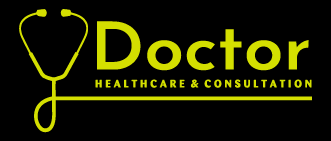Medical coding is a job that requires utmost accuracy. Failure to submit correct claims will often result in a rejection or even complete denial. This can then affect the cashflow of a medical facility, which could in turn impact patient care.
However, not all incorrect claims are rejected or denied. Some will go through and will be paid by the insurance company or government agency. This might not seem like a bad thing but what if you are constantly under-coding and are not getting the correct reimbursement from the insurance company? This would cost your business money and affect the bottom line.
On the flip side, what if your coders were regularly up-coding and your business was being paid more than it should for the treatments provided? This might mean higher profits for your business, but it could also mean huge fines or even imprisonment if it were come to light as it would be a breach of the Federal Civil False Claims Act.
Common Medical Coding and Billing Errors
The biggest reason by far for medical coding mistakes is human error. This could be on the part of the healthcare provider who has not completed the patient report correctly. It can often be difficult for coders to decipher the handwriting of physicians or nurses, which may mean mistakes when assigning a code.
Sometimes, those new to medical coding may accidentally choose an incorrect code when translating patient records. Those searching through books of codes may find it overwhelming to source the right code or feel that finding the exact code is taking too long. This can lead them to rush and choose incorrect diagnosis codes, for example. The coder might find it easier to use an online database search instead, such as that provided by Findacode.com.
The above are typical unintentional errors, but sometimes coding involves deliberate mistakes that can occur for unscrupulous or well-meaning reasons. Unbundling is a term used for using individual codes for a group of procedures that should be input under one ‘bundled’ code. The separate codes almost always result in more money for the medical provider.
Up-coding is another coding error that will usually result in higher payments for the medical facility. This happens when the coder chooses to bill for a more expensive procedure than the one that was actually performed. Duplicate billing is another way to increase a facility’s profits through incorrect billing.
Under-coding might occur when a well-meaning healthcare provider is hoping to minimize the cost to a patient and does not bill them for the full treatment received. Some facilities might under-code in order to avoid audits on the emergency department.
How to Avoid Mistakes in Coding and Billing
Mistakes can happen when it comes to medical coding and billing, but if these mistakes are occurring on a regular basis or if they have resulted in costly fines, it is necessary to get this area of the business under control. The best thing to do is deal with potential errors before they occur. This could be done by employing an individual to manage the coding and billing department or by using special software designed to spot errors before any claims are submitted for payment.
Some companies will choose to outsource their coding and billing to a reputable company instead as this can take the stress out of dealing with this side of the business and allow them to make patient care their primary focus once more. Using a company that specializes in accurate coding and billing will reduce errors and could even save you money.



